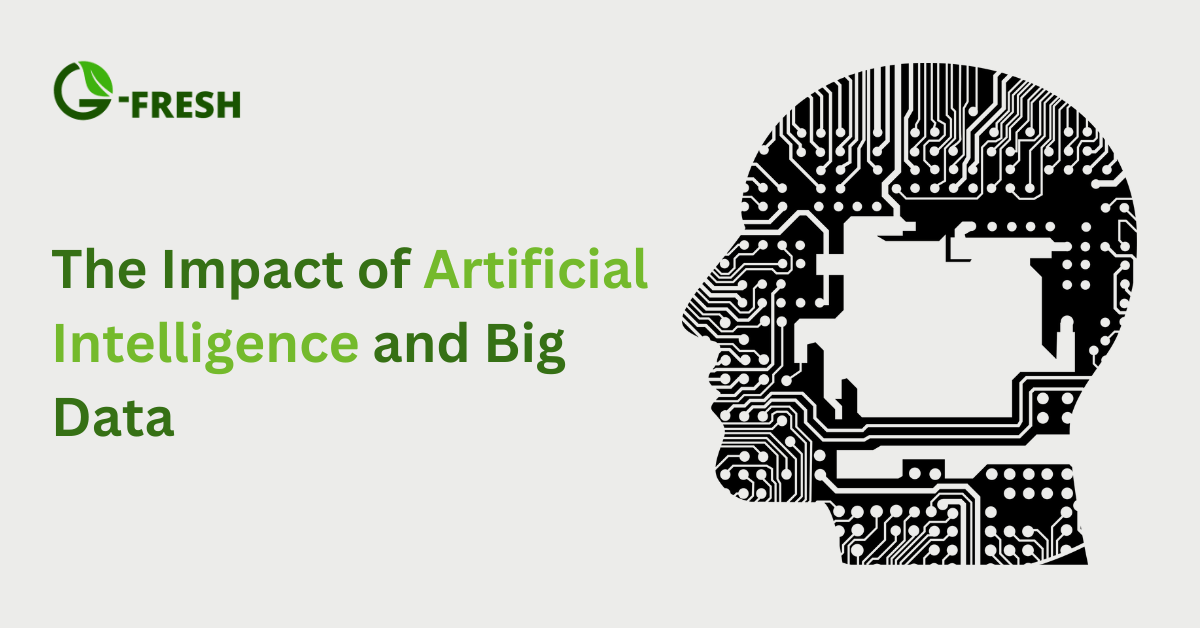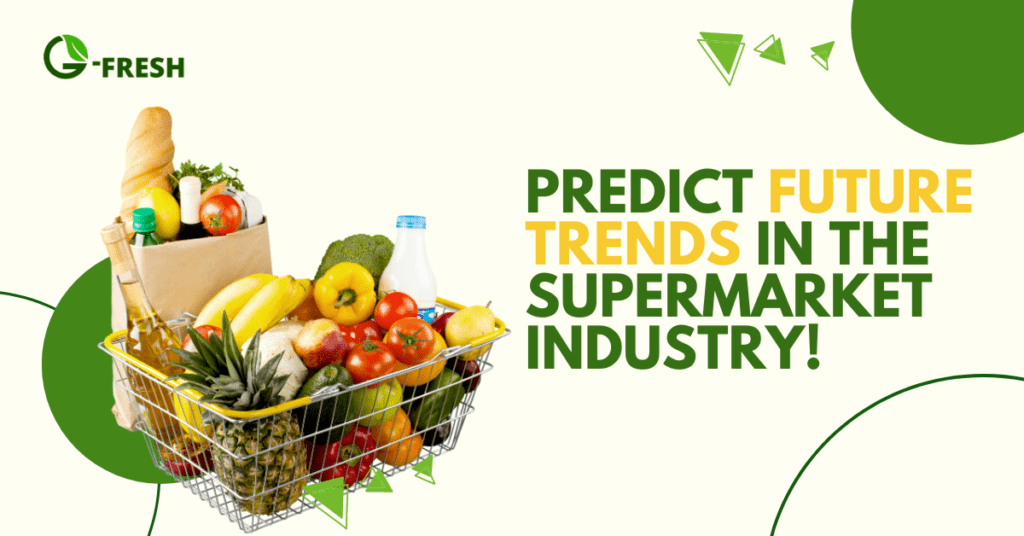Predict future trends in the supermarket industry
Future Trends in the Supermarket Industry
The supermarket industry, like any other, is in a constant state of flux, driven by shifting consumer preferences, technological advancements, and global economic trends. As we look toward the future, several emerging trends are set to redefine the way we shop for groceries and household essentials. In this blog post, we’ll delve into these trends, exploring how predecting future trends in the supermarket Industry.
-
The Rise of Online Grocery Shopping:
The COVID-19 pandemic has accelerated the adoption of online grocery shopping, a trend that shows no signs of slowing down. Consumers have grown accustomed to the convenience of ordering groceries from the comfort of their homes, leading to a surge in demand for online grocery delivery services.
Future Outlook:
- Enhanced User Experience: Supermarkets will invest in improving their online platforms to offer a seamless and user-friendly experience. Features like personalized recommendations, easy navigation, and quick checkout processes will become standard.
- Subscription Models: Similar to subscription boxes for other products, supermarkets might offer subscription services for groceries, providing regular deliveries of staple items at a discounted rate.
- AI and Automation: Advanced AI algorithms will predict consumer needs more accurately, ensuring better stock management and reducing delivery times. Automated warehouses and delivery drones could further streamline the process.
-
Sustainable and Ethical Shopping:
Consumers are becoming increasingly conscious of the environmental and ethical implications of their purchases. This shift in mindset is pushing supermarkets to adopt more sustainable practices and offer products that align with these values.
Future Outlook:
- Eco-Friendly Products: There will be a growing emphasis on organic, locally sourced, and sustainably produced goods. Supermarkets will dedicate more shelf space to these products and highlight their benefits through in-store and online promotions.
- Packaging Innovations: Expect to see more biodegradable and reusable packaging options. Some supermarkets might even adopt a zero-waste model, encouraging customers to bring their own containers.
- Transparency and Traceability: Consumers will demand greater transparency regarding the origins and production processes of the products they buy. Blockchain technology could be used to provide detailed information about each item’s journey from farm to shelf.
-
Personalization and Customization
In an age where data is king, supermarkets have the opportunity to leverage consumer data to offer personalized shopping experiences. By understanding individual preferences and shopping habits, supermarkets can tailor their offerings to meet the specific needs of each customer.
Future Outlook:
- Targeted Promotions: Personalized discounts and offers based on past purchases will become more prevalent. This not only enhances customer satisfaction but also boosts sales.
- Customized Products: Supermarkets might offer customization options for certain products, such as freshly prepared meals or personalized snack packs, catering to individual dietary preferences and requirements.
- Loyalty Programs: Enhanced loyalty programs will reward customers for their continued patronage with personalized perks and exclusive offers.
-
Health and Wellness Focus
The growing awareness of health and wellness is influencing consumer choices, prompting supermarkets to expand their range of healthy and nutritious products. This trend is set to continue as more people prioritize their well-being.
Future Outlook:
- Health-Focused Sections: Supermarkets will create dedicated sections for health foods, including gluten-free, vegan, and low-calorie options. These sections will be prominently displayed and regularly updated with new products.
- Nutritional Information: Providing detailed nutritional information will become a standard practice. Some supermarkets might even offer in-store nutritionists or dietitians to assist customers in making healthier choices.
- Wellness Programs: Beyond just products, supermarkets could introduce wellness programs, such as fitness classes, cooking workshops, and health seminars, to engage with their community and promote a healthier lifestyle.
-
Technological Innovations in Store
As technology continues to advance, supermarkets will adopt new tools and systems to enhance the shopping experience and improve operational efficiency.
Future Outlook:
- Smart Shelves: Equipped with sensors, smart shelves will monitor inventory levels in real-time, alerting staff when restocking is needed. This ensures that popular items are always available and reduces the likelihood of stockouts.
- Cashier-Less Checkouts: The success of cashier-less stores like Amazon Go indicates a shift towards automated checkout systems. These systems use sensors and cameras to track purchases, allowing customers to simply walk out with their items and be billed automatically.
- Augmented Reality: AR technology could be used to provide customers with additional information about products as they browse the aisles. For example, scanning a product with a smartphone could display reviews, nutritional information, and recipe ideas.
-
Community Engagement and Social Responsibility
Supermarkets play a crucial role in their local communities, and there is a growing expectation for them to engage more actively and responsibly.
Future Outlook:
- Local Partnerships: Partnering with local farmers, producers, and artisans will not only support the local economy but also provide customers with fresher and more diverse products.
- Charity Initiatives: Supermarkets will increase their involvement in charitable activities, such as food drives, sponsorship of local events, and donations to food banks. These efforts will help build a positive brand image and foster customer loyalty.
- Community Spaces: Some supermarkets might create community spaces within their stores, offering areas for social gatherings, workshops, and events. This approach can transform the supermarket into a hub of community activity.
-
The Evolution of Private Labels
Private label products, once considered inferior to national brands, have seen a significant rise in popularity. Consumers now view many private label products as high-quality and value for money.
Future Outlook:
- Premium Offerings: Supermarkets will expand their private label ranges to include premium products, catering to more discerning customers. This could include gourmet foods, organic produce, and artisanal goods.
- Exclusive Products: By collaborating with renowned chefs and food producers, supermarkets can offer exclusive products under their private labels, differentiating themselves from competitors.
- Brand Loyalty: Stronger branding and marketing efforts will elevate the status of private labels, encouraging consumers to choose these products over national brands.
-
The Integration of Food and Non-Food Items
The line between food and non-food items is blurring, with supermarkets increasingly offering a diverse range of products beyond groceries.
Future Outlook:
- Lifestyle Sections: Supermarkets will create dedicated sections for lifestyle products, such as home goods, beauty products, and electronics. This approach aims to provide a one-stop shopping experience for customers.
- In-Store Services: In addition to products, supermarkets will offer various services, such as dry cleaning, pharmacy, and banking services. This enhances convenience and attracts more foot traffic.
- Experiential Retail: To make shopping more engaging, supermarkets might introduce experiential elements, such as live cooking demonstrations, product sampling stations, and interactive displays.
-
Global Flavors and Culinary Diversity
As consumers become more adventurous with their food choices, supermarkets are expanding their offerings to include a wider variety of global flavours and culinary options.
Future Outlook:
- International Aisles: Supermarkets will curate extensive international aisles featuring ingredients and products from around the world. This caters to diverse communities and encourages culinary exploration.
- Ready-to-Eat Meals: The demand for convenient meal solutions will drive the growth of ready-to-eat meals inspired by global cuisines. These meals will be freshly prepared and offer a taste of different cultures.
- Cooking Kits: Supermarkets might offer cooking kits that include all the necessary ingredients and recipes to prepare authentic international dishes at home. This simplifies the cooking process and makes it accessible to everyone.

-
The Impact of Artificial Intelligence and Big Data
AI and big data are transforming the way supermarkets operate, from inventory management to customer service.
Future Outlook:
- Predictive Analytics: By analyzing historical data, supermarkets can predict demand patterns and optimize inventory levels, reducing waste and ensuring popular items are always in stock.
- Personalized Marketing: AI-driven algorithms will enable more targeted marketing campaigns, delivering personalized advertisements and promotions to individual customers based on their preferences and shopping history.
- Chatbots and Virtual Assistants: To enhance customer service, supermarkets will deploy chatbots and virtual assistants capable of answering queries, providing product recommendations, and assisting with online orders.
Conclusion
The future of the supermarket industry is brimming with possibilities, driven by technological advancements, changing consumer behaviors, and a greater emphasis on sustainability and community engagement. As supermarkets navigate these trends, they have the opportunity to create more personalized, convenient, and responsible shopping experiences.
By embracing these trends, supermarkets can not only meet the evolving needs of their customers but also play a pivotal role in shaping a more sustainable and connected future. Whether it’s through innovative technologies, eco-friendly practices, or community initiatives, the supermarket industry is poised for an exciting transformation.
FAQs
Q: How can we predict future trends in the supermarket industry?
A: Predicting future trends in the supermarket industry involves a combination of analyzing current market data, consumer behavior, and industry innovations. By examining sales data, customer preferences, and emerging technologies, businesses can identify patterns and anticipate shifts. Staying informed about health trends, sustainable practices, and economic changes also provides valuable insights. Engaging with customers through surveys and social media can offer direct feedback, helping supermarkets adjust to evolving demands.
Q: What role does technology play in forecasting supermarket trends?
A: Technology plays a crucial role in forecasting trends within the supermarket industry. Advanced analytics and machine learning can process large amounts of data to identify patterns and predict future behaviors. For example, point-of-sale data, customer loyalty programs, and online shopping habits can be analyzed to anticipate which products will be in demand. Additionally, technology like RFID (Radio Frequency Identification) and IoT (Internet of Things) devices can track inventory levels and reduce waste, ensuring that supermarkets are stocked with the right products at the right times.
ALSO READ: Explore the History and Growth of Supermarket Franchises Globally
